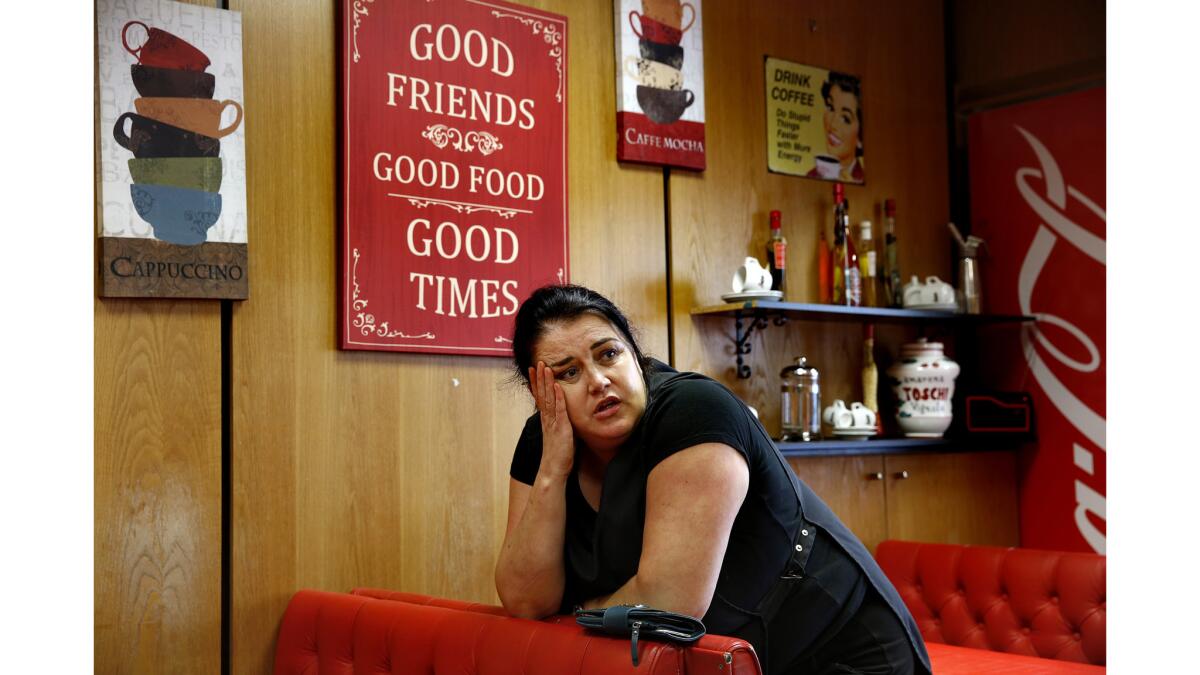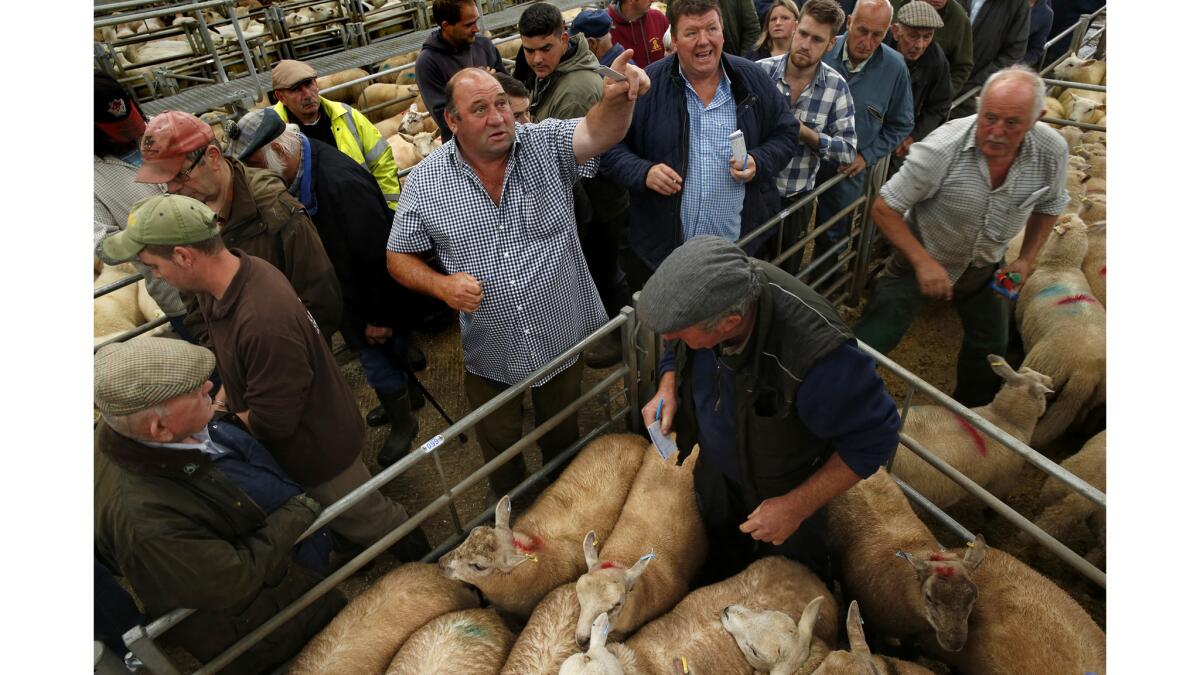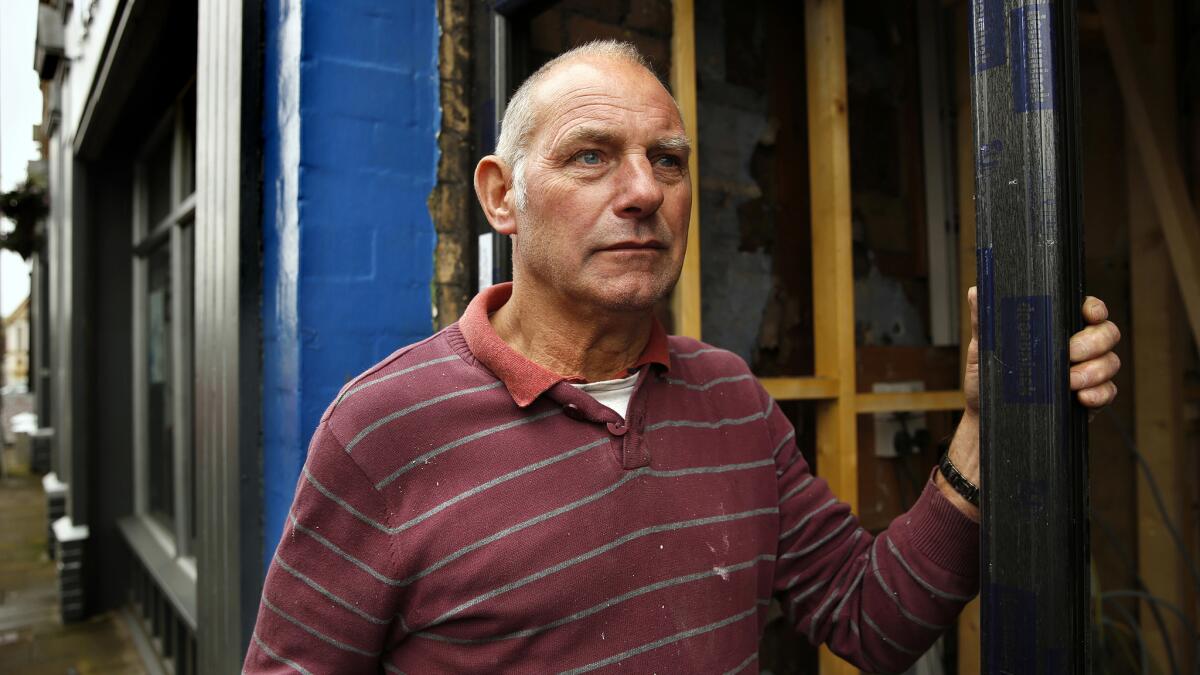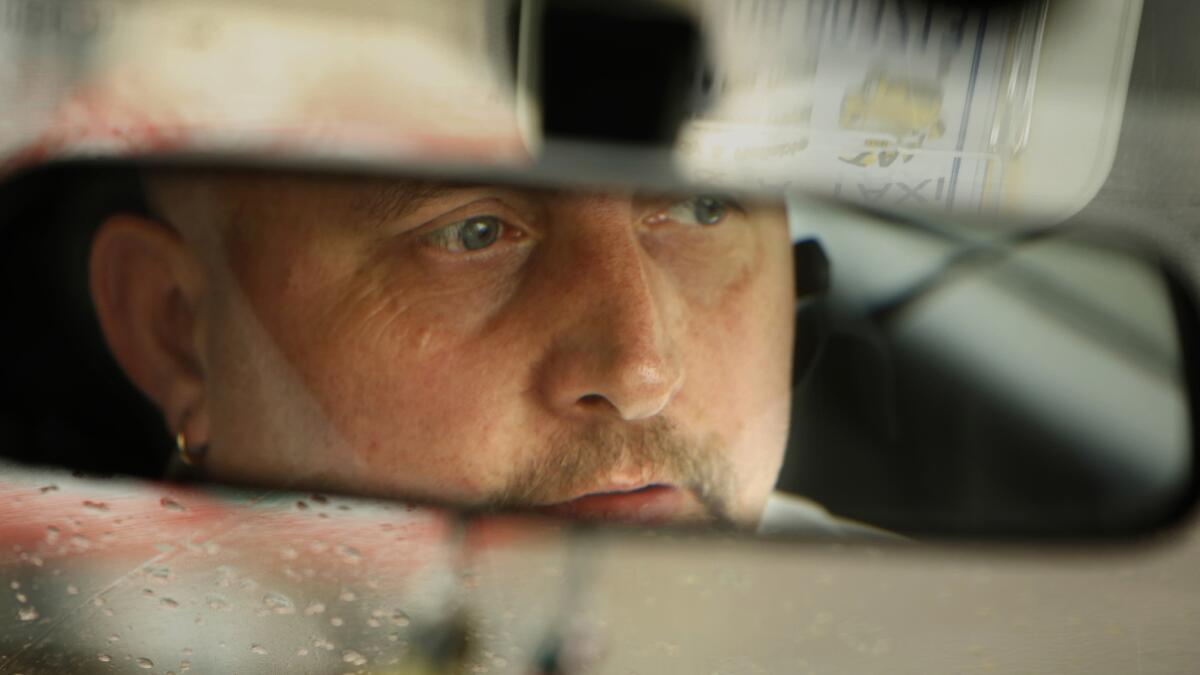This British steel town got millions from the EU, but voted to leave anyway

Ann Williams believes her hardscrabble former steel town in Wales would survive Britain’s divorce from the European Union just fine.
A reopened railroad line and upgraded expressway have connected the remote hamlet of Ebbw Vale to nearby cities, bringing visitors and making it easier for residents to commute to jobs, she said.
“We’ve got a lot of things coming up here, so we’ll be all right,” said Williams, 69, a retired hotel worker. “That’s why I voted ‘Out.’ ”
But the highway and rail line were financed in large part with European Union funds. So were job training programs, improvements to the town center, a multistory parking garage and a new college — a modern silver cube set atop the reclaimed grounds of the defunct steel works.
Signs of European Union largesse abound in Ebbw Vale, a town of about 20,000 tucked into a tree-lined valley that has not recovered since its steel mill — the largest in the region a century ago — was shuttered in 2002.
Over the past 15 years, the county of Blaenau Gwent, where Ebbw Vale is located, has received nearly $200 million in redevelopment funds from EU headquarters in Brussels under a program to reduce economic disparities across the continent.
Yet 62% of county voters opted to leave the EU in the June 23 referendum. Across Britain, the vote was 52%-48% in favor of exiting the bloc, which started after World War II to promote economic cooperation and avoid war.
Why one of Britain’s most economically deprived areas rebelled against a system that has showered it with subsidies is one of the paradoxes of the referendum, and it points to the anti-establishment anger that drove voters left behind by globalization to reject EU membership.
“I think it’s going to be a political science case study for a long while,” said Daniel Evans of the Wales Institute of Social and Economic Research.
“The referendum wasn’t just about the EU, but it boiled down to a simple question: Are you upset? And by people voting ‘Leave,’ it was sticking two fingers up at the establishment.”
We have moved heaven and earth to try to shift the economic stats of this area, but many people are still struggling.
— Richard Crook, head of regeneration for the Blaenau Gwent county council
In Blaenau Gwent County, 36% of adults lack high school diplomas, and 20% of working-age people receive government benefits — making it one of the poorest pockets of Wales.
But many residents say they haven’t benefited from EU aid.
“The only good thing that comes out of Brussels are the sprouts,” said Deb Phillips, 48, her curly gray hair matted down by the gray, spitting rain that forms a typical summer afternoon in Wales.
Phillips was standing on Ebbw Vale’s low-slung main street under a new clock tower, an aggressively modern structure that resembles a long steel lollipop bent at the stem. It was part of $16 million in improvements to the town center, one-quarter of which was EU funding.
While that was being built, local authorities briefly halted funding for the public bathroom, a squat brick structure across the road. Phillips, the janitor, worries about caring for her autistic son and said the spending was a sign of misplaced priorities.
“They build all this stuff, and meanwhile, our basic services are falling apart,” she said. “So no, I don’t think we need help from the EU.
“A lot of the young generation don’t remember how we did things before in this country, on our own. We put a lot more into the EU than we get back from it.”
While that is a common refrain in Ebbw Vale, it is not, strictly speaking, true: Wales has received more than $5 billion in EU development money since 2000, the most per capita of anywhere in Britain, and far more than it contributes to the European budget.

In 2014, Wales saw a net benefit from the EU of $107 per resident, according to a study by the Wales Governance Centre at Cardiff University.
The task of determining how to spend the EU money fell to an unwieldy Welsh bureaucracy, which critics say mismanaged the funds in pursuit of big-ticket projects that delivered little economic gain. Several investments failed, including a rural heritage center in northern Wales that was closed for a lack of visitors and a costly high-tech incubator that Swansea University is considering tearing down.
Over the past 15 years, Wales’ economy has fallen further behind other European countries, deepening the sense of disaffection in a place that feels much farther from London than a three-hour train journey.
“We have moved heaven and earth to try to shift the economic stats of this area, but many people are still struggling,” said Richard Crook, the head of regeneration for the Blaenau Gwent county council. “And if people don’t feel that over the last 20 years the economy has improved for them, then they’re not going to believe there has been any meaningful investment here.”
Over the past 15 years, Wales’ economy has fallen further behind other European countries, deepening the sense of disaffection in a place that feels much farther from London than a three-hour train journey.
“We have moved heaven and earth to try to shift the economic stats of this area, but many people are still struggling,” said Richard Crook, the head of regeneration for the Blaenau Gwent county council. “And if people don’t feel that over the last 20 years the economy has improved for them, then they’re not going to believe there has been any meaningful investment here.”

Twelve miles up the road in Abergavenny, the picture is different: There was no steel mill there, so people made a living as farmers, raising sheep and lambs. The town and surrounding Monmouthshire County have higher education levels and life expectancy than their neighbors, and by a narrow margin, 50.4%-49.6%, voted to remain in the EU.
“All the worst-off areas voted to leave, and all the well-off areas voted to stay,” said Mel Hutton, 64, a former steel worker in Ebbw Vale. “It’s simple as that.”
Andy Thomas, a 44-year-old taxi driver, said he wanted to have more control over his country. He wasn’t worried that the referendum result prompted Britain’s currency to plunge, its credit rating to drop or billions of dollars in value to disappear from stock markets.
“It doesn’t really affect me,” Thomas said with a shrug. “I don’t travel abroad, and I don’t have any investments.”

That powerful feeling of alienation drove nearly 72% of voters to cast ballots in Wales, where turnout in recent national elections has never topped 50%. It also made many voters sympathetic to the anti-immigrant rhetoric of pro-exit politicians, even in areas where there is hardly any immigration.
Blaenau Gwent is 97% white, yet some residents said they voted to leave the EU in part to bring down the numbers of people migrating from eastern and central Europe. More than one person invoked Enoch Powell, the fiery right-wing politician who argued in the late 1960s that immigrants were destroying Britain.
“We should have sorted out the immigration issue years ago, but now it’s too late,” said Kay Rose, 67.
Rose’s daughter, Sam Lewis, who owns the century-old cafe in the center of town, said she voted to leave the EU despite a lack of clarity from politicians about the consequences.
“It’s an uncertain time. People are angry, and they want things to change,” Lewis said. “So I don’t have any regrets about my vote. But ask me in two years.”
ALSO
For thousands of Brits, France is home. But what happens after Brexit?
In Britain, anxiety about immigration started long before the ‘Brexit’ vote
‘Brexit’ campaigner Boris Johnson withdraws from race to become Britain’s prime minister
More to Read
Start your day right
Sign up for Essential California for news, features and recommendations from the L.A. Times and beyond in your inbox six days a week.
You may occasionally receive promotional content from the Los Angeles Times.







